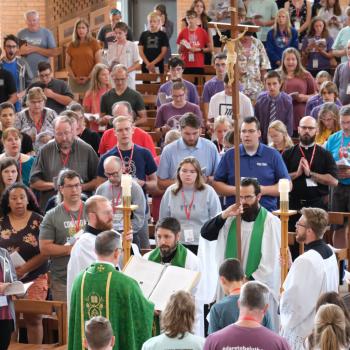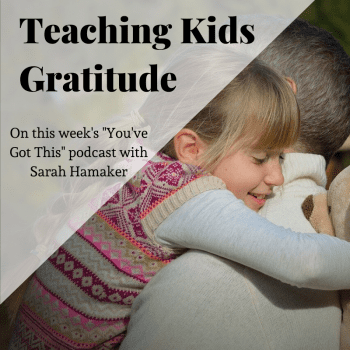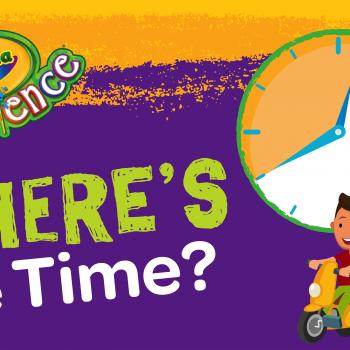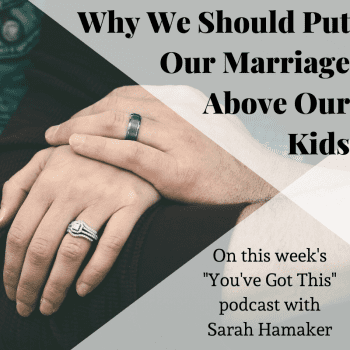 The following is an excerpt from my podcast, “You’ve Got This.”
The following is an excerpt from my podcast, “You’ve Got This.”
Have you ever thought about parenting as seasonal? At times, you may feel you’re making little progress in raising your kids, so it can help if you think of child-rearing as fitting into four distinct seasons.
Season One is the Season of Service, which is from birth to age 2. This is the season where the mother orbits around the child. This is the exhausting season! You often operate on little sleep in the first few months. Then, once your child starts sleeping longer at night, he or she is more active during the day. Before you know it, you’re exhausted from chasing after a toddler all day long.
The purpose of Season One is threefold:
- To root the child securely in the world
- To provide for the child’s basic needs
- To keep the child safe.
In the Season of Service, the mother is the primary servant and the father generally adopts the role of “parenting aide.”
When the child is between the ages of 2 and 3, the mother should begin the crucial transition to Season Two by reducing how much she does for her child and by building a boundary between herself and the child. It’s during this transitional period that the mother redefines herself to the child as the child moves into Season Two. This means the mother deliberately moves the child from the center of the family and puts herself—and by extension her husband—into the center, reorienting the family around the husband and wife, and not the child or children.
Season Two is the Season of Leadership and Authority. This season, which encompasses ages 3 to 13, is also called the Decade of Discipline. At this time, the child should be orbiting around the husband and wife, while the parents discipline the child and impart values.
The child should become the willing disciple of his or her parents, internalizing their values and working toward the self-mastery necessary to govern himself or herself responsibly. This is where you build the firm foundation that should bear fruit during seasons three and four. It’s also hard work because consistency is key to discipling our kids—and it can get frustrating to constantly reprimand a child for the same infraction again and again. We have to be careful during this season not to lose our close connection with our kids.
During Season Three, which runs from age 13 to emancipation, the child’s orbit begins to increase until he’s ready to launch into a life of his own. This Season of Mentoring can be a difficult adjustment for many parents, who want to tighten, rather than loosen, their grip on their teens. Many of the problems of older teens and college age kids can be traced to a failure of parents to properly mentor their children during Season Three.
As a teenager, the child should be considered self-governing…and be free to make his or her own mistakes. The parent acts more like a coach, coming alongside the teen as he or she works to acquire the practical skills needed for a successful launch into adulthood.
The final season is the one that lasts the longest—Season Four, or the Season of Friendship. This is where all your hard work as a parent pays off as your child is fully emancipated and leaves the nest. You transition from parent to parent-peer.
Our goal is to reach Season Four—that’s why our parenting focus should be on raising adults. Our children should want to leave home and live independently, and we should be glad when they do. Sure, our child will still seek parental guidance, but he or she will largely be living life on their own.
To hear more, listen to “Seasons of Parenting” on the “You’ve Got This” podcast.
















